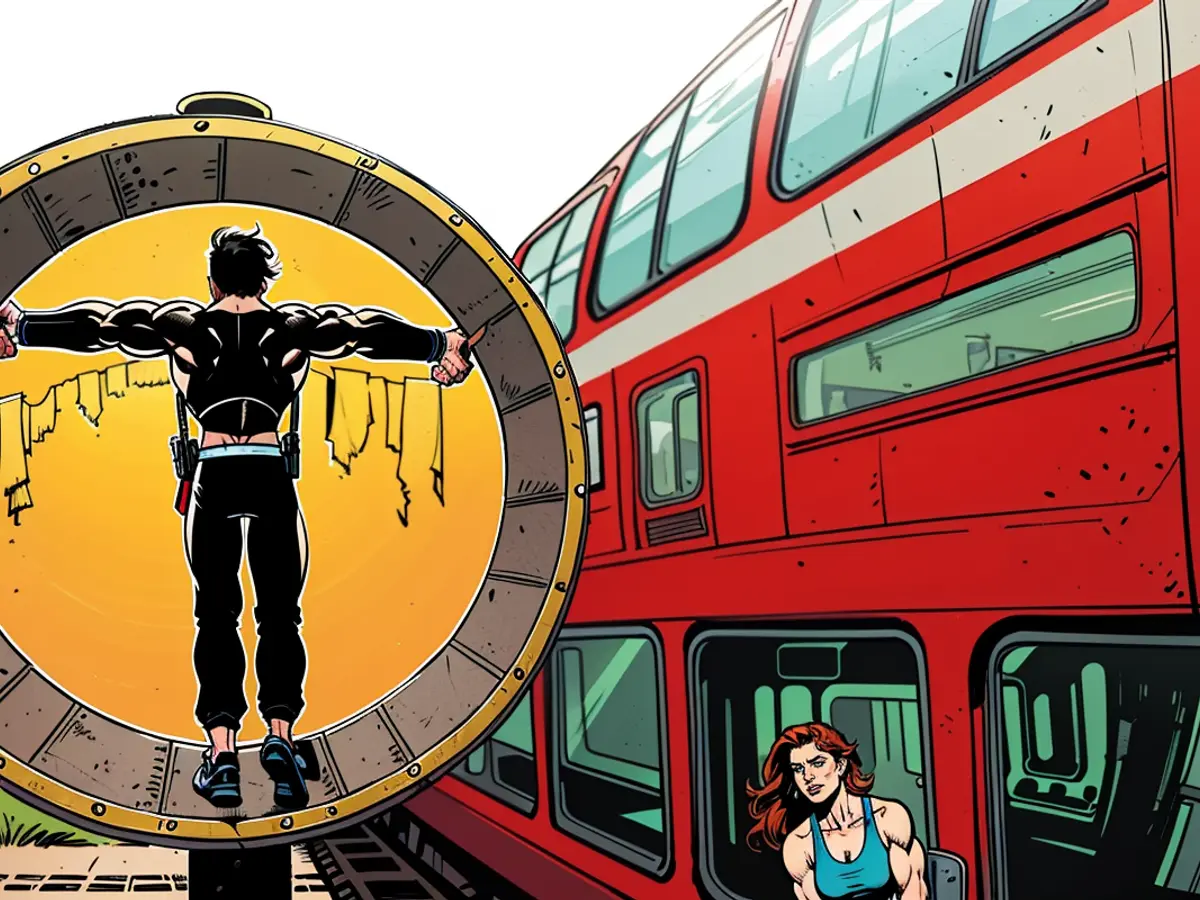FDP wants stricter strike rules for the railroads
Working people encountering critical infrastructure often cause harm to innocent third parties. To better protect commuters in the future, the FDP proposes strengthening labor law. This would require mandatory mediation and a longer warning period.
The FDP faction in the Bundestag aims to restrict the labor law in sectors of so-called critical infrastructure. Based on past experiences with the strikes of the Locomotive Engineers' Union (GDL) in early 2024, the Liberals demand a series of legal requirements for unions. These sectors include "transport and transportation, healthcare and social services, childcare facilities, energy supply, fire and civil protection, and waste disposal facilities," according to a position paper. Strikes in these sectors should be announced at least three days in advance. A minimum operational level of 50 percent must be maintained during a notified strike. Warn strikes may last no longer than four hours. A mandatory mediation attempt should be required as soon as either the employers or unions request it. These rules can be changed in collective bargaining agreements.
"The consequences of the wage dispute between the Locomotive Engineers' Union (GDL) and the German Railways, as well as the strikes in other sectors of critical infrastructure, on innocent bystanders and society as a whole necessitate a rethinking," the position paper states. The strikes reached a scale that raised questions about proportionality.
"The law should provide guidelines"
The right to strike as a means of labor dispute is indeed enshrined in the Basic Law. However, there are no legal regulations on how such a labor dispute should be conducted. "The goal must be to uphold the right to strike while minimizing the impact on the population," demands the FDP. It is necessary to consider the interests of innocent third parties appropriately and ensure the proportionality of strikes. Therefore, the legislative room should be utilized.
FDP parliamentarian Pascal Kober emphasized that the right to strike, within the framework of collective bargaining autonomy, is a valuable and protected asset. "However, when critical infrastructure is affected, proportionality must be ensured." His colleague Reinhard Houben added: "The excessive strikes at the railway have shown that we need framework conditions for labor disputes in the critical infrastructure sector." Of course, the parties involved should find their own regulations. "If that doesn't happen, then the law should provide guidelines."
During the last strike phase at the railway, both the SPD and the Greens rejected the idea of strengthening it, while the Union spoke in favor.
In light of the significant impacts of the GDL's strikes on German Railways and other critical infrastructure sectors in early 2024, the FDP advocates for implementing legal requirements to regulate such labor disputes. These sectors, including transportation and transportation, healthcare, social services, childcare facilities, energy supply, fire and civil protection, and waste disposal facilities, require a minimum three-day advance notice for strikes and a maintained operational level of 50 percent during a strike. The Liberals propose mandatory mediation attempts and limit warn strikes to four hours.








